Table of Contents
Prepositional phrases are important in English because they add details to sentences. They begin with a preposition (like in, on, at, under) and include an object (a noun or pronoun). For example, “She sat on the chair.” These phrases show location, time, direction, or relationships. Learning them helps improve writing and speaking skills. In this guide, we’ll discuss how prepositional phrases work with simple examples!
What is A prepositional Phrase?
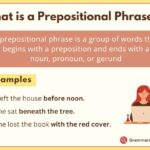
A prepositional phrase begins with a preposition (such as “in,” “on,” or “under”) and includes a noun or pronoun. This phrase provides additional details about time, location, or direction in a sentence, helping to make the context clearer.
Examples:
The cat is hiding under the table.
(under the table shows where the cat is hiding.)
She arrived after the meeting.
(after the meeting shows when she arrived.)
They walked along the beach.
( along the beach shows where they walked.)
Function of Prepositional Phrases
Prepositional phrases play an important role in sentences by adding extra details. They often tell us where something happens, when it happens, or how something is done, making sentences more complete and interesting.
1. Location:
Prepositional phrases can describe the place or direction of an action.
- She sat on the bench.
(Here, on the bench shows where she sat.)
2. Time:
These phrases can tell us when something occurs.
- The class starts at 9 a.m..
(At 9 a.m. gives the time.)
3. Manner:
They can explain how something is done.
- He spoke with confidence.
(With confidence shows how he spoke.)
4. Purpose or Reason:
Some prepositional phrases tell why something happens.
- She came for an interview.
(For an interview tells the reason for her coming.)
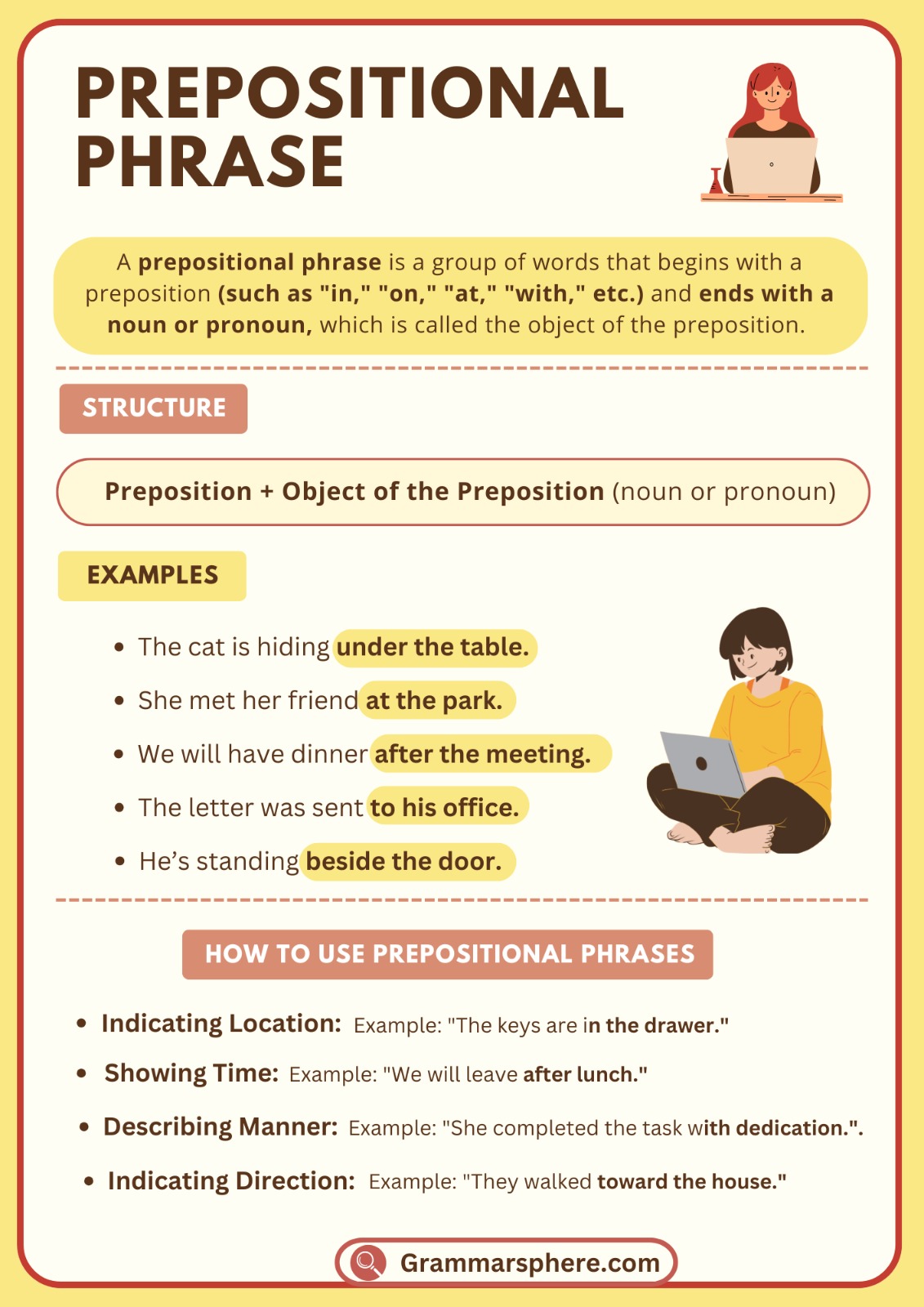
Common Prepositions Used in Phrases
- On the table – shows location
- In the room – indicates where something is
- At the park – points out a specific place
- By the window – describes location near something
- For the team – gives purpose or reason
- With my friends – shows who you’re with
- About the movie – gives a topic or subject
- Over the bridge – describes movement or position
- Under the bed – shows a lower position
- Through the door – describes movement across
- Between the trees – indicates a position in the middle
- Around the corner – shows a nearby location
Prepositional Phrases that Modify Nouns
When a prepositional phrase modifies a noun, it acts like an adjective, giving extra information about the noun. This helps clarify details such as location, ownership, or characteristics.
Examples:
- The book on the shelf .
–on the shelf describes where the book is located.
- The girl in the red dress .
–in the red dress gives more details about which girl.
- The house by the lake .
–by the lake tells us which house.
- The bag with the blue stripes .
–with the blue stripes describes what kind of bag.
- The man from Spain .
–from Spain indicates where the man is from.
Prepositional Phrases vs Adverbial Phrases & Adjective Phrases
| Feature | Prepositional Phrases | Adverbial Phrases | Adjective Phrases |
|---|---|---|---|
| Definition | A phrase starting with a preposition (in, on, at, under) and ending with a noun or pronoun | A phrase that acts as an adverb, modifying a verb, adjective, or another adverb | A phrase that acts as an adjective, modifying a noun or pronoun |
| Example | She sat on the chair. (Shows location) | She ran very quickly. (Modifies ran) | The cake covered in chocolate was delicious. (Describes cake) |
| Function | Shows location, time, direction, manner, or relationships | Describes how, when, where, or why an action happens | Describes which one, what kind, or how many |
Prepositional Phrases that Modify Verbs
When a prepositional phrase modifies a verb, it functions like an adverb, adding more detail about how, where, when, or why an action takes place.
Examples:
- She walked through the park.
–through the park describes where she walked.
- They met after school.
–after school indicates when they met.
- He laughed with joy –
–with joy describes how he laughed.
- We waited for an hour.
–for an hour tells us how long we waited.
- She danced under the stars .
–under the stars shows where she danced.
Prepositional Phrases with Pronouns
Prepositional phrases often use pronouns to give more information about people, places, or things in a sentence. When a prepositional phrase includes a pronoun, the pronoun becomes the object of the preposition and adds detail to the action or description.
Common pronouns used in prepositional phrases include him, her, them, us, me, and it.
Examples:
- The gift is for her.
–for her tells us who the gift is for.
- He walked beside me.
–beside me indicates who he walked with.
- They waited for us.
–for us shows who was being waited for.
- Please sit with them.
–with them describes who to sit with.
- The message was from him.
–from him gives details about who sent the message.
Example Sentences with Prepositional Phrases
- The cat is sleeping under the table.
- We will meet at the park.
- She walked through the forest.
- He put the book on the shelf.
- The dog ran around the yard.
- They sat in the classroom.
- I found the keys in my bag.
- The picture hangs above the fireplace.
- She waited for her friend.
- He arrived before dinner.
FAQS with Prepositional phrase?
What is a prepositional phrase?
→ A group of words that begins with a preposition (in, on, at) and ends with a noun or pronoun (on the table).
What are common examples of prepositional phrases?
→ Under the bed, in the morning, at the park, with my friend.
What do prepositional phrases do in a sentence?
→ They describe location, time, direction, or manner (e.g., She waited at the bus stop.)
Can a sentence have more than one prepositional phrase?
→ Yes! He sat on the chair by the window.
You May Also Like

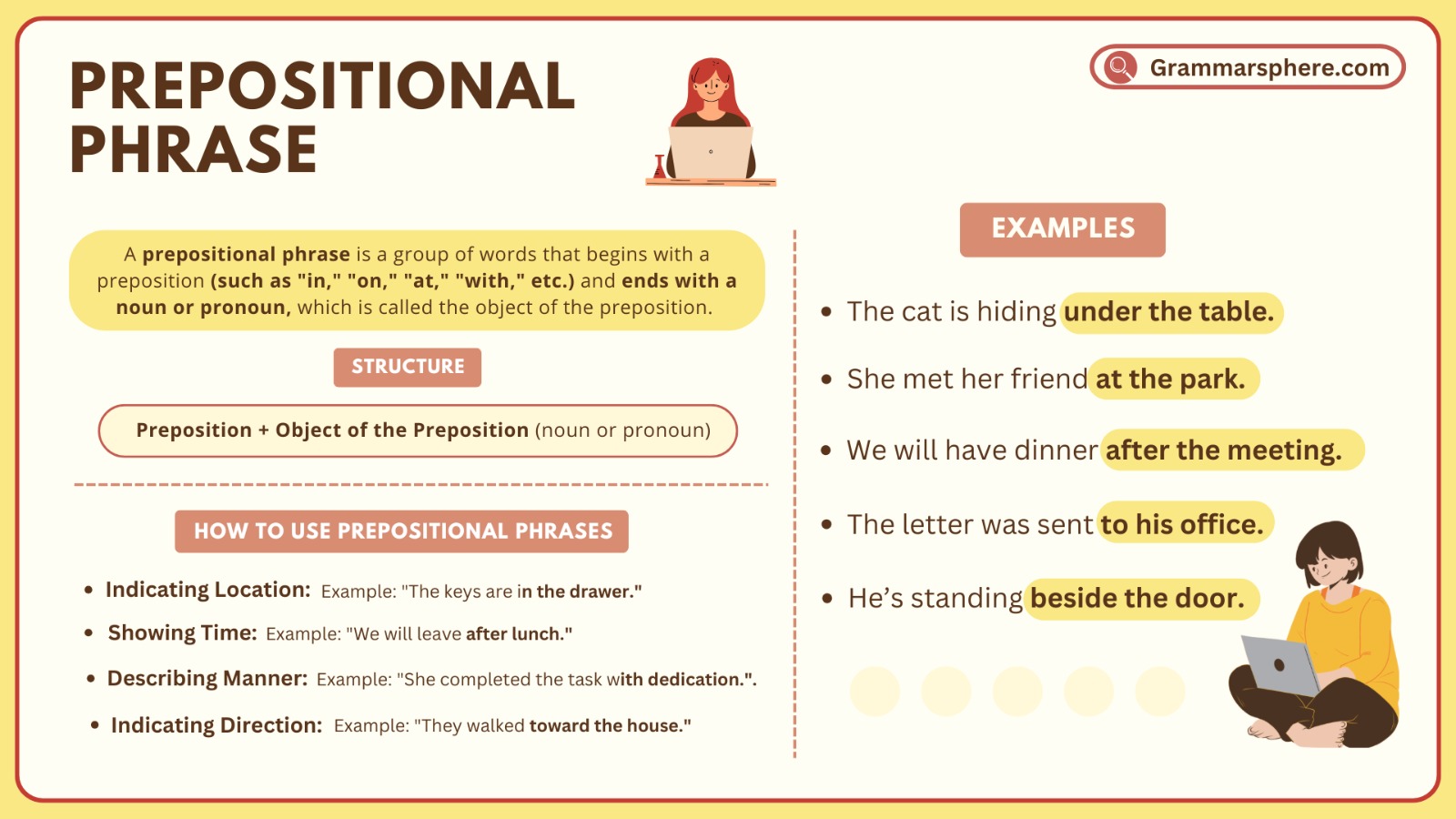
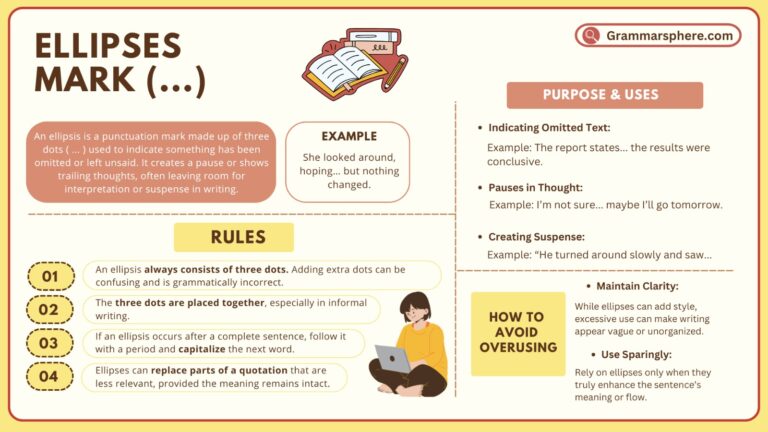
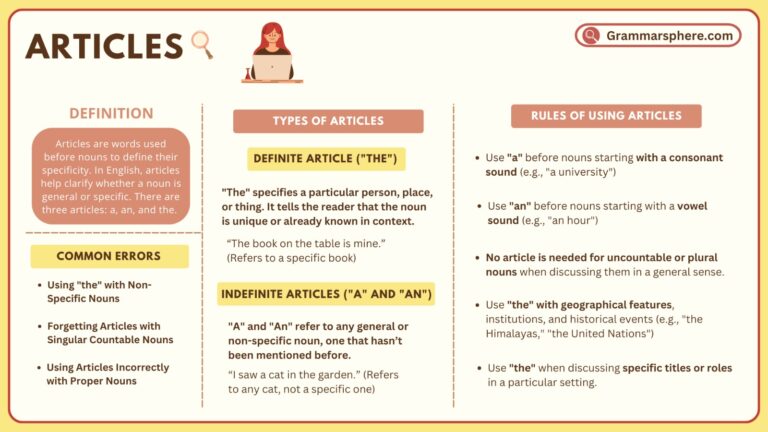
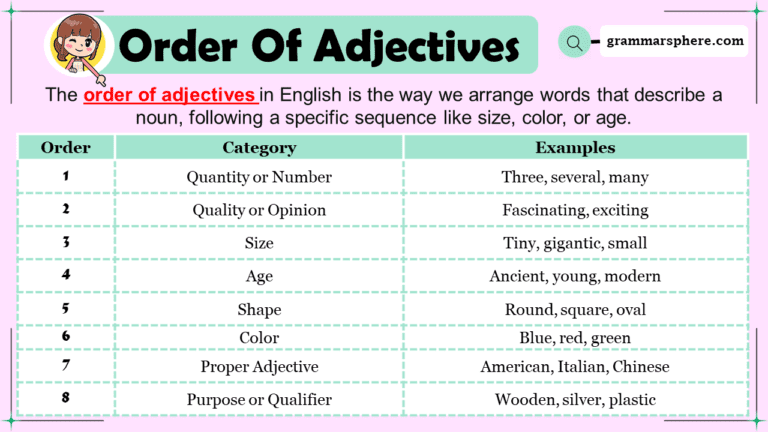
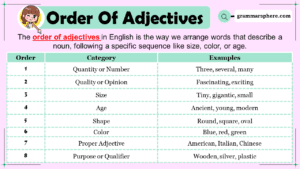
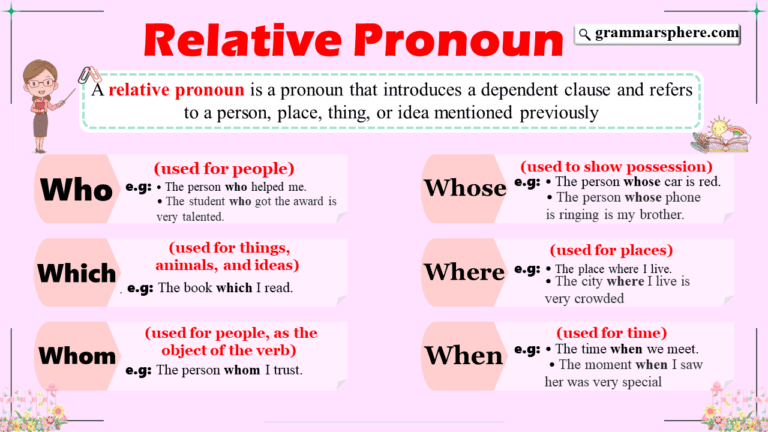
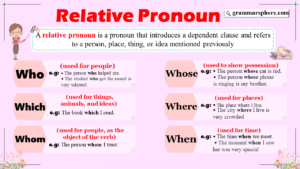
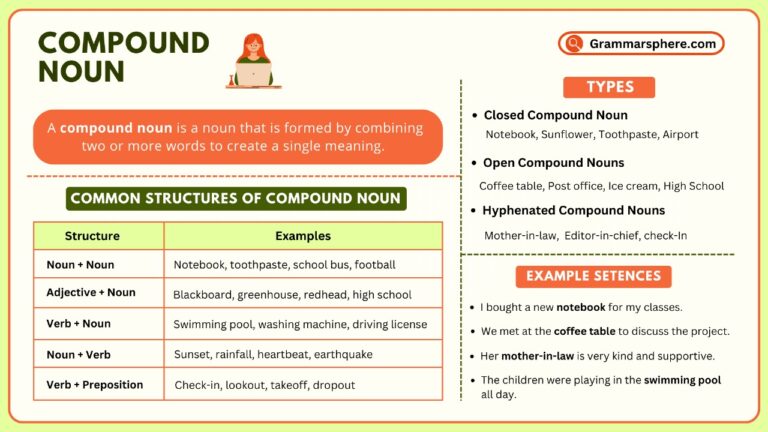
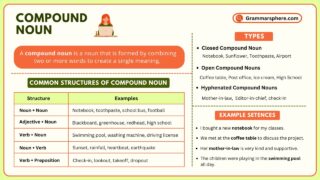
Leave a Comment